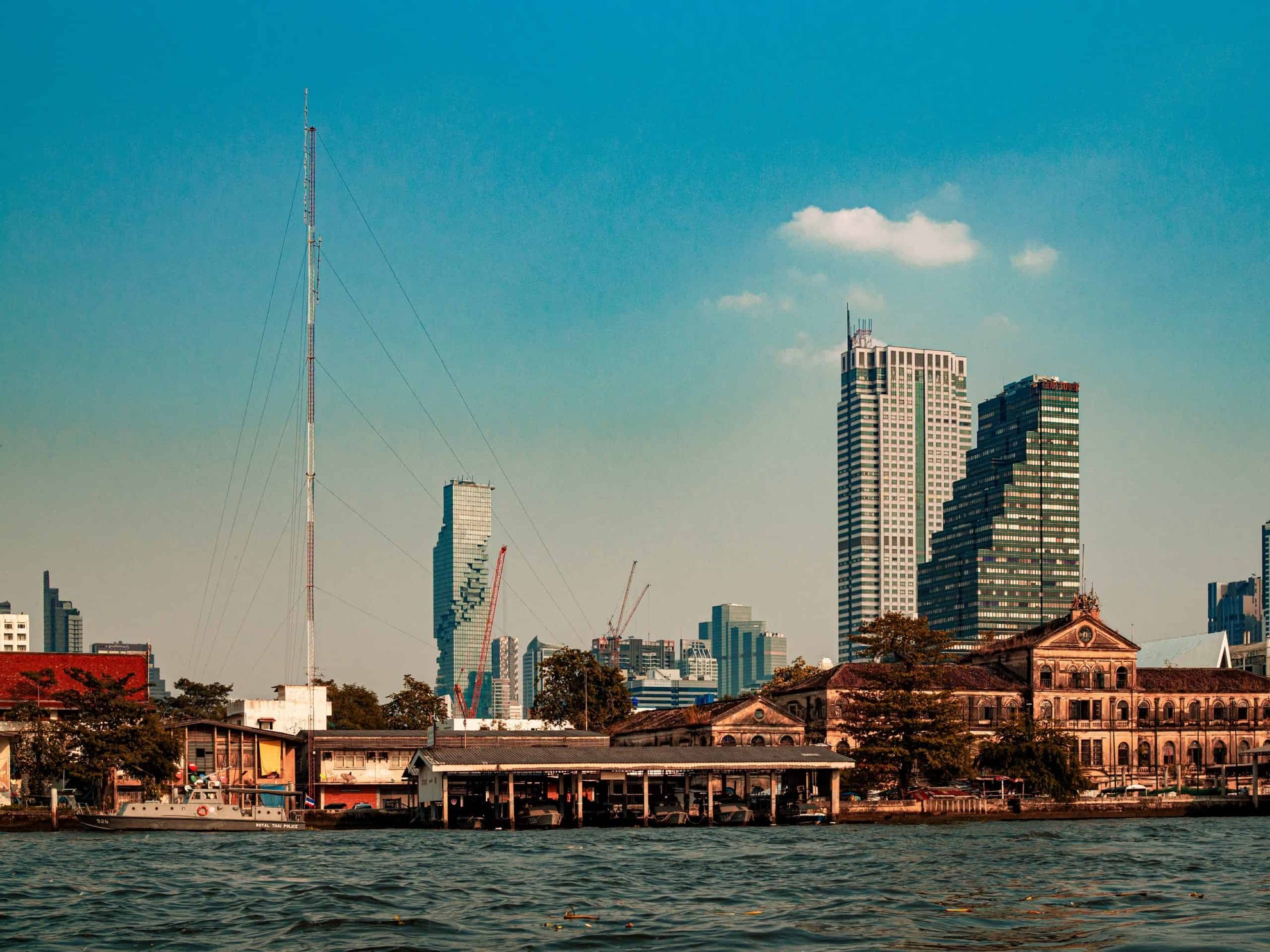Main Navigation
Thailand
Overview
Thailand has embraced a green growth development model under the “Sufficiency Economy Philosophy”.
Thailand has a dynamic, emerging market economy. With this, unsustainable production and consumption patterns from the industrial sector – which accounts for almost 40 percent of GDP – is a key source of environmental issues. The country faces a number of challenges — including biodiversity loss, high plastic and air pollution, inadequate treatment of hazardous and non-hazardous waste, and water pollution — all of which come at a cost, both human and economic.
Thailand has made sustainable development and green economy priorities, particularly through its “Sufficiency Economy Philosophy” — integrated into its national development guide, the National Strategy (2018-2037). What’s more, Thailand’s 12th National Economic and Social Development Plan (NESDP) 2017-2021 integrates a commitment to the Sustainable Development Goals and Nationally Determined Contributions (NDCs).
During 2020, in response to COVID-19, the Thai Government acted swiftly to contain the virus and, subsequently, rescue the economy with sizable fiscal stimulus packages, amounting to USD 76.2 billion (15.0% of GDP).
COVID-19 & Green Recovery
The Thai Government identified four areas of focus in its initial green recovery efforts: food security, health security, job security, and energy and environmental security, as part of its 400-Billion-Baht Economic and Social Rehabilitation Fund (or 400B Baht Rehabilitation Fund) in June 2020. After analysis of current policies and planning and discussions between PAGE agencies, the UN Resident Coordinator’s Office (UNRCO) and national stakeholders, Thailand submitted a proposal for green recovery support through PAGE in October 2020.
PAGE will assist in the greening of Thailand’s economic and social recovery projects funded under the Government’s Rehabilitation Fund and support their alignment with key SDGs, NDCs, and/or other global sustainability frameworks. Activities will include developing an evaluation framework for assessing the impacts of selected projects; providing policy advice for aligning recovery efforts with national targets on green jobs, resource and energy efficiency, climate change mitigation and adaptation, among others; facilitating public discourse on the evaluation results and policy implications; and strengthening the capacity of relevant ministries and government agencies on a green and inclusive recovery.
PAGE Milestones
- 2018
“20-Year National Strategy 2018-2037” developed
- 2019
Thailand joined PAGE
- 2020
Inception phase initiated, with analysis of COVID-19 economic impacts
Government focal point for PAGE appointed within Office of the National Economic and Social Development Council (NESDC)
Thailand’s application to PAGE Support for Green and Inclusive Economic Recovery approved
Progress in 2020: A Snapshot
Initiating the inception phase
The COVID-19 pandemic delayed Thailand’s inception phase for the start of PAGE activities. An initial meeting between the PAGE […]
The COVID-19 pandemic delayed Thailand’s inception phase for the start of PAGE activities. PAGE will organize a kick-off meeting with the NESDC in February 2021 to discuss initial priorities and plan the inception meetings with key ministries and stakeholders in the following month.
Inception phase activities will include meetings with key ministries, national focal points, and key individuals from the private sector, the Chamber of Commerce, and the NGOs and civil society. These activities will define a governance structure and framework for PAGE Thailand as well as create a collective understanding of PAGE’s scope.
Laying foundations
In April, PAGE conducted a green recovery needs assessment survey to identify Thailand’s priorities for a green recovery and subsequent […]
In April, PAGE conducted a green recovery needs assessment survey to identify Thailand’s priorities for a green recovery. Discussions with the UN Resident Coordinator (UNRC), the PAGE Secretariat, PAGE agencies, and NESDC identified areas where PAGE support could accelerate the green economic recovery together with the Royal Thai Government. The identified activities will align with the Government’s 400-Billion-Baht Economic and Social Rehabilitation Fund (or 400B Baht Rehabilitation Fund).
Namely, PAGE will assist in the greening of Thailand’s economic and social recovery projects and support their alignment with key SDGs, NDCs, and/or other global sustainability frameworks.
Capacity-building for green recovery and beyond
At the start of 2021, PAGE green recovery support in Thailand will organize capacity-building activities and media events on green […]
Planning from 2020 has fed into PAGE green recovery support in Thailand starting in 2021 with planned capacity-building and media events on green and inclusive economic recovery. Capacity-building efforts will target key government officials to harness knowledge for developing policy frameworks for a green economic growth, including fostering green industrialization, circular economy and green jobs.
Media efforts will aim to improve public discourse on green recovery and advocate for a climate-friendly, low-emission environment as the norm. Activities will ensure that the public understands the impact of a green economy as well as actions that can contribute to its realization. Thailand also plans to share its experience in COVID-19 recovery efforts with other PAGE countries and global fora.



